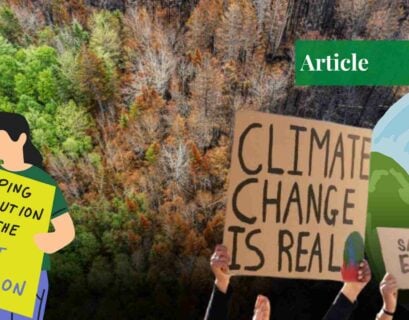Ms Zainab Haseeb is studying IR at Kinnaird College for Women, Lahore. She has previously participated in WWF's eco-internship.
Introduction
One of the core ingredients of the West’s liberal order is that of liberal institutionalism. The phenomenon aims to introduce institutes of economic and political nature in order to reduce anarchy in the world. An important institute in this regard is the International Monetary Fund (IMF).
IMF is known for having far-reaching impacts on global and national economic growth. At times of financial distress, the IMF comes to aid the states through the introduction of macroeconomic reforms. Moreover, it sanctions funds on the bases of conditions that significantly impact the economic future of the states. The developing world has become increasingly dependent on IMF over the past few years.
Pakistan’s Economic History
In order to understand the current economic position of Pakistan, it is necessary to understand its journey. Pakistan saw reforms in the financial sector in the 1990s for increasing the monitoring and supervision of financial institutions. In 2004, the State Bank passed an order for banks to introduce an increase in minimum capital requirement.
Between 2007 and 2018, there was a rise of 421% in loans and advances, but the profitability was reduced. The return on average equity fell by 1.69% to 0.80%. That is when the State Bank of Pakistan began to implement Basel regulations for aligning with the international community. The Basel II and Basel III regulations were implemented in 2006 and 2013 respectively. The regulations had an increasing impact on the profitability of commercial banks.
The Ninth Economic Review
The ninth economic review was supported by the extended fund facility arrangement. In these dealings, it was decided that negotiations could not become functional until the state provided an economic framework. The executive board of the IMF completed the ninth economic review of Pakistan to evaluate its economic performance under a 36-month program.
The IMF team arrived in Pakistan on 31st January, 2023 to discuss the ninth review of the $7 billion extended fund facility. The main agenda was to hold technical talks based on economic data given by different departments. The focus of the mission remained the inducement of policies for restoring domestic and external policies guaranteeing sustainable growth. That includes strengthening the fiscal position of the state through high-quality measures that are durable.
In consideration of the economic losses inflicted by the 2022 floods, IMF is making efforts to remain engaged with the state of Pakistan. The authorities, under the current program, are supporting the endeavor to introduce relief to the vulnerable affected by the floods. Other objectives of the visit include advancing reconstruction efforts and sustainable policies. The team aims to restore the viability of the power sector and reverse debt accumulation.
Challenges
According to the Finance Division, there have been policy slippages by the government which can further delay the dealings between IMF and Pakistan. Differences have been observed in the GDP projections of the Planning Ministry and Finance Division, and the inclusion of post-flood data is what is leading to the difference. Based upon these changes, a growth of 2.3% was proposed by the Planning Ministry, while the Finance Division proposed a growth of 2.8%.
Tasks
The discussions revolved around the $6 billion bailout package that was taken in 2019. A year later, $1 billion was added to this package. As per the ninth review, Ishaq Dar, the Finance Minister of Pakistan, has agreed to implement the fiscal measures demanded by IMF which include raising 170 billion PKR through new taxes that will be imposed in the coming year.
Another provision of the deal is the implementation of a hike in fuel prices. The diesel levies are to double to around 5 PKR a Liter from the month of March, with the second hike to start from 1st April. Apart from these targets, there was an emphasis laid during the meetings on revenue collection, phasing out the untargeted subsidies, and non-interference with the exchange rate.
What Next?
The visit of the IMF was completed after 10 days of talks without reaching a staff-level agreement. However, the officials of Pakistan have expressed determination to complete the conditions of the program and engage in the virtual talks starting today. Moreover, Dar showcased his aims for bridging the fiscal gap, stabilizing the exchange rate, and regulating the energy sector.
If you want to submit your articles and/or research papers, please check the Submissions page.
The views and opinions expressed in this article/paper are the author’s own and do not necessarily reflect the editorial position of Paradigm Shift.



















